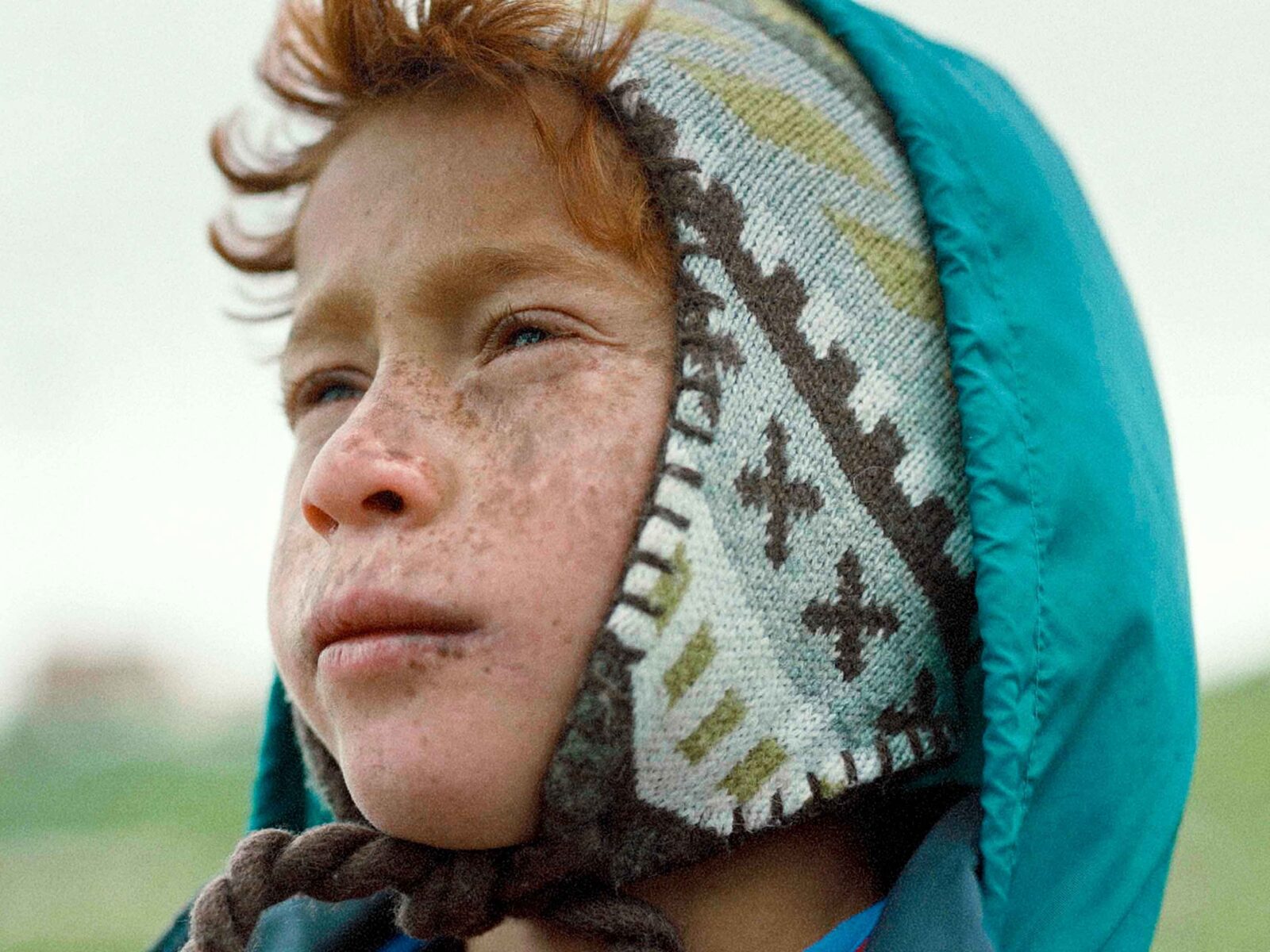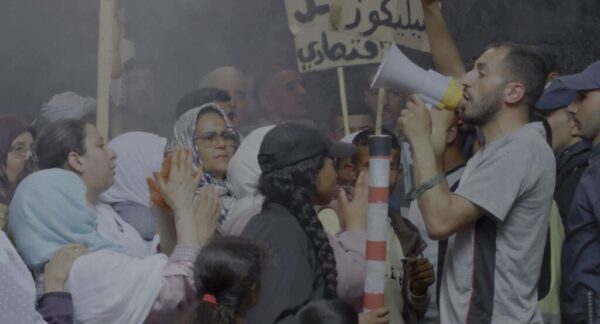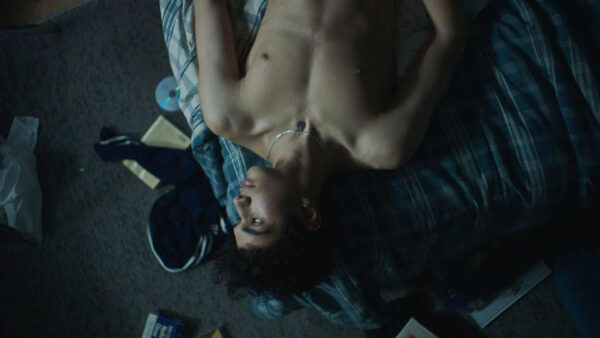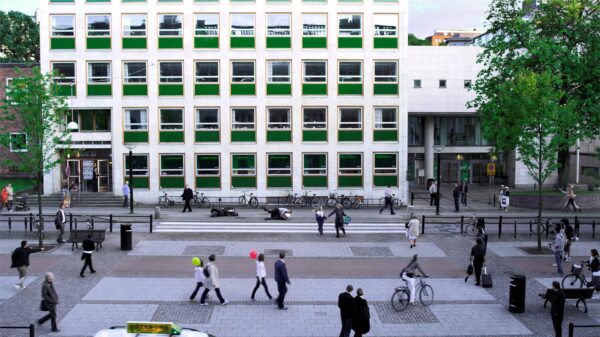Of Fathers And Sons… And Daughters-In-Law
Brotherhood
Meryam Joobeur’s major festival hit, exploring the tensions within a Tunisian family, is cinematically and ethically flawless.

The day before I started this review, the Facebook page of Brotherhood celebrated the 70th award from 157 festivals across 48 countries. Having in mind the most probable audience of this platform, I don’t have to specify too many details about one of the most popular short films of 2019, one of the contenders for the Academy Award for Best Short Film (Live Action), and now also Short Film Conference’s Short of the Year 2019.
It is rare for a short film to get this much media attention—I found two full Google result pages of reviews. And with good reason: Meryam Joobeur has made an emotionally powerful picture that works equally well for regular audiences, festival programmers, and critics. The subject matter is both topical and universal, the script and editing are superbly economic and efficacious, the mix of excellent actors and the three remarkable, young non-professional brothers functions probably even better than the director might have hoped for, the camerawork fits the story and setting perfectly with its combination of hand-held close-ups and the 4:3 ratio, and the high contrast and grain added in post-production heighten the film’s dramatic intensity.
So what is there then left to criticise? When a film is so universally acclaimed, my resident devil whispers in my ear to try and find ethical problems or logical holes with it. This is what I will do here, and hopefully, there will one day be a comments section so I can get some feedback, and you can throw insults at me.
In the opening scene, Mohamed, the family patriarch, teaches his middle son, Chaker, to slaughter a sheep. The slaughtering itself takes place off-screen. In the last 15 years or so, violence against animals (including already dead ones, like this sheep that a wolf has killed) has largely been banished from arthouse screens, even from documentaries about farmers’ life. The argument that it is gratuitous is debatable, however—what if the filmmaker intentionally uses it to confirm or dispute a prejudice or believes it has a purpose in the overall dynamics and aesthetic of the film?
From my point of view, there is no problem here with leaving the slaughtering off-screen: Joobeur has economically and convincingly introduced the world of the protagonists, and the amount of blood dripping from the sheep onto father’s shirt as he carries it is certainly copious enough to dispel any notion of intentional cleanness. Moreover, the blood foreshadows and symbolises the experiences of the eldest son, Malek, who returns from fighting for Daesh in Syria.
And here we are on the most potent terrain for ethical issues. This Tunisian family is Muslim, but it is clear they are not hard-core fundamentalists. To a somewhat informed Western mind, this fits the preconceptions: North African Muslims are probably less devout and aggressive than their Middle Eastern brethren. But in an interview for We Are Moving Stories, Joobeur reveals that “a higher than average percentage of men from the region [of this part of Tunisia] had gone to Syria.” Immediately cue another preconception: older men are more rational and peaceful than hot-blooded kids who are the primary target of Daesh recruiters. Undoubtedly true, but in what is perhaps the most significant storytelling master-stroke, Joobeur turns it upside down: it is Mohamed who notches up his patriarchal self-righteousness to (re-)assert dominance, petulantly protesting the niqab of his unexpected daughter-in-law Meer, while Malek displays patience and common sense, not least when he warns his younger brothers never to go to Syria. Moreover, the father’s fatal act of hubris at the end gloriously brings the film to its oft-cited Greek tragedy dimension.
So far, so good. Now, how are we doing with the representation of women in the Muslim world in a film directed by a Muslim woman? I can hardly think of a more tender and on-the-point sequence than the one in which Meer helps her mother-in-law Salha do the dishes, only for Mohamed to come and simultaneously exert his patriarchal prerogatives and civilisational superiority. Again, Malek proves to be the bigger man as he gently convinces Meer to remove the niqab for the sake of everyone involved.
Except, perhaps, for Meer’s sake? Let’s not digress by repeating the multi-faceted and insolvable burqa debate—focus on the girl. She is a victim in every sense of the word. If there is the right environment to liberate her from this terrible role and label, it is the influence of reasonable and understanding people such as Salha and Malek. Since it is given that Mohamed wouldn’t let her do it in her own time, she has to go through another shameful experience. But this is not the director’s fault unless you want this film to be something it is not. This is where meaning and storytelling meet: in the moment when we see her face, the face of a child who was raped over and over again, who was hoping that she was finally out of an unfathomable hell, only to suffer another moment of humiliation. At least it is shielded, with a protective man to hold her and a kind-hearted woman who can relate and will comfort her.
As a white European man, I can’t even hope to begin to understand if I got all this right. But as a critic, I can’t find any significant cinematic or ethical fault with Brotherhood. Suppose it ticks all the right boxes, which fuels my resident devil. In that case, I feel that this comes from Meryam Joobeur’s knowledge and insight on the one hand and sensitivity and talent on the other rather than an award-baiting calculation. As a feature-length version of the film is reportedly in development, we will have the chance to re-examine all these points, and more.





There are no comments yet, be the first!